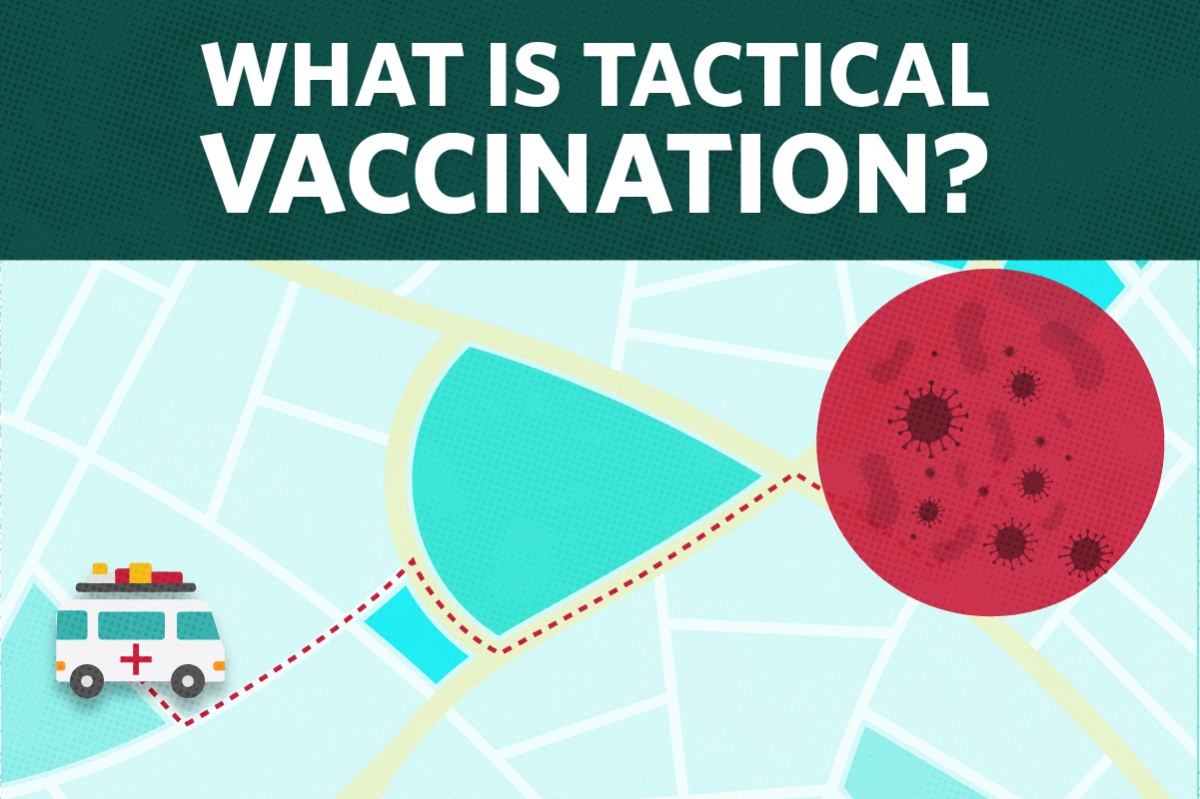Tactical Vaccination: What Is It and Why Do It?
Increased COVID-19 vaccination requires focus on COVID-19 clusters
Posted on Aug 3, 2021

If there’s a COVID-19 outbreak at a food processing plant, can we rapidly vaccinate the rest of the factory workers? Or if there’s an outbreak at a youth sports tournament, can we vaccinate all of the coaches and athletes from all of the teams?
When we include vaccination when responding to a new COVID-19 cluster, it’s called “tactical vaccination.” This is an innovative approach that can complement other efforts to increase vaccination rates, especially in vulnerable communities.
The first step to implement this strategy is to identify the cluster. This is typically done through retrospective contact tracing, which is when a tracer works with a person who has tested positive for COVID-19 to reflect on when and where they might have been infected and identify others present—in other words, a cluster of cases. More often, contact tracers do prospective contact tracing, which involves asking patients to identify their close contacts during the period of time they were most infectious. Both methods are effective, but retrospective contact tracing is a key component of tactical vaccination by identifying potential hot spots.
Next, people involved in the cluster are notified of their exposure and encouraged to get tested and vaccinated. One method is to send a mobile testing and vaccine team to the hot spot—which often has a low vaccination rate—with the goal of reducing barriers to accessing testing and vaccination.
For nearly four decades, Partners In Health (PIH) has used this strategy to bring vaccines for many types of infectious disease, including cholera and Ebola, to communities where it works in many countries around the world.
“We want to have true equity in access to vaccination, so we have to make tactical choices and decisions to support communities most at risk and those who have suffered from the highest burden of COVID-19,” says Dr. Regan Marsh, strategic advisor of PIH’s United States Public Health Accompaniment Unit.
As variants spread, including the highly contagious Delta variant, public health officials are considering ways, such as tactical vaccination, to reach communities most at risk of COVID-19 and most in need of vaccination support, including those who test positive for the virus.
“By asking everyone coming for a COVID test if they need to be vaccinated, and vaccinating them on the spot if they do, we can vaccinate people on the leading edge of the pandemic and stop transmission. And in this phase, that is exactly what we need to do,” Dr. K.J. Seung, PIH's senior health and policy advisor on infectious disease prevention, preparedness and response, wrote in a co-authored article in The Atlanta Journal Constitution.
Tactical vaccination is important not only for the United States, but also for many other countries. Only 1% of people in low-income countries have received a single dose of a COVID-19 vaccine, compared to 51% in high-income countries. PIH will continue to push for equitable global vaccination distribution and envisions tactical vaccination will be an increasingly common strategy in both high- and low-income countries.

